- Home
- JoAnn Ross
A Woman's Heart
A Woman's Heart Read online
Praise for A Woman’s Heart by JoAnn Ross
“JoAnn Ross masterfully paints a picture of a magical, mystical land. With delightful touches of folklore storytelling, Ms. Ross tells a tale that delivers laughter, tears and so much joy…”
—Romantic Times
“Filled with warmth and wisdom and magic, A Woman’s Heart is sure to appeal to readers who love deeply moving romance, children, relatives, horses, big dogs and Irish charm.”
—Antoinette Stockenberg, bestselling author of Dream a Little Dream
“A Woman’s Heart will find a place in every fan’s heart, as it is an extraordinary tale that will charm the audience. This is one time the luck of the Irish will shine on every reader.”
—Affaire de Coeur
“The beauty of the people is what kept me reading this excellent-in-every-way novel. If you’re not already a JoAnn Ross fan, you will be after reading A Woman’s Heart.”
—Rendezvous
“A Woman’s Heart is…a warm and winning story of the redemptive power of love.”
—The Romance Reader
“A Woman’s Heart blends elements from legends within a contemporary storyline to produce a brilliant novel. JoAnn Ross presents her readers with a bouquet of four leaf clovers…”
—Painted Rock Reviews
Also available from MIRA Books and JOANN ROSS
LEGACY OF LIES
DUSK FIRE
STORMY COURTSHIP
TEMPTING FATE
SOUTHERN COMFORTS
BAIT AND SWITCH
NO REGRETS
Coming soon
CONFESSIONS
JOANN ROSS
A WOMAN’S HEART
To my agent, Damaris Rowland, who believed in this story from conception.
To all my pals who kept me writing during the tough times—especially the wonderfully supportive members of RWA On-Line; the Romance Group on AOL, who provided a fun place to hide out; the wise and witty Stars, who’ve come to mean so much to me; and most particularly, Patty Gardner Evans, who always knows exactly when to let me whine.
To my son, Patrick, his wife, Lisa, and Marisa-the-Wonder-Toddler, a brilliant ray of sunshine who can brighten even the darkest of days.
And last, but certainly not least, to my beloved Jay, who changed my life that fateful morning so long ago and continues to make every day an adventure.
Contents
Prologue
Chapter One
Chapter Two
Chapter Three
Chapter Four
Chapter Five
Chapter Six
Chapter Seven
Chapter Eight
Chapter Nine
Chapter Ten
Chapter Eleven
Chapter Twelve
Chapter Thirteen
Chapter Fourteen
Chapter Fifteen
Chapter Sixteen
Chapter Seventeen
Chapter Eighteen
Chapter Nineteen
Chapter Twenty
Chapter Twenty-One
Chapter Twenty-Two
Chapter Twenty-Three
Chapter Twenty-Four
Chapter Twenty-Five
Chapter Twenty-Six
Epilogue
Prologue
Unanswered Prayers
It was twilight, that mystical time when the world seems suspended between day and night. The remote lake, carved by glaciers into the surrounding folded green hills, glimmered with the reflection of the ruins of the twelfth-century castle that had given the Irish town of Castlelough its name.
As the sun sank lower and lower in the cloud-scudded sky, six-year-old Rory Fitzpatrick sat in his secret wishing place and related the events of the day to his best friend.
“Johnny Murphy stole communion hosts. And not just ordinary bread ones, either, but the special holy hosts in the tabernacle that were already blessed. You know, the ones Father O’Malley takes to shut-ins.
“And Johnny even passed them out on the playground. A lot of kids who haven’t had their first communion yet and didn’t know better ate them. But I didn’t.”
The Lady didn’t answer. She never did. But Rory sensed her unspoken approval.
“He got in a lot of trouble. Sister Mary Patrick paddled him, and he’s not going to be allowed to go on the father-and-son trek.”
He sighed, drew his knees up to his chest and wrapped his thin arms around them. Across the reed-fringed lake, the stone castle seemed to brood in the gloaming.
“I think I’m going to pretend to get sick that day. Father O’Malley says you don’t need a da to go, and Cousin Jamie says I can share his, but it’s not the same thing. And besides, his da’s drunk a lot. And mean even when he’s not. So I wouldn’t want to be sharing him, anyway.”
Rory put his chin on his bent knees and looked out over the darkening blue water. “I wish I had a father.”
Beside him, Maeve, the gray, white and black Irish wolfhound his aunt Kate had given him, whimpered. Rory might have thought she was feeling sorry for him, but the dog whined all the time. His mother said poor Maeve was the most fearful beast ever born in all Ireland. Or probably anywhere else, for that matter. Rory figured she was probably right. Which was why it was strange she’d never seemed afraid of the Lady.
“Great-grandma Fionna says that God always answers our prayers. But you know how I’ve been praying forever. Ever since I was a little kid. And Aunt Kate gave me a special rock she said is just like one the druids used for making magic—” he pulled the rune with the marks scratched into its surface from the pocket of his jeans and showed it to her “—but I still don’t have a da.”
Another sigh. “If I had a da, maybe Mam would stop crying.”
The Lady’s bright eyes, which were exactly the color of Rory’s favorite aggie marble, asked a silent question.
“Oh, she never cries when anyone’s around,” he said quickly. “But sometimes, late at night, when I have to get up to go to the bathroom, I hear her. I think she’s worried she’s going to have to take the job working for that businessman in Galway.”
He’d been telling the Lady all about this for a month. A month during which his mother had been pretending nothing was wrong.
The mountains were changing colors in the shifting light. Rory knew if he didn’t get home soon, she’d worry.
And didn’t his Mam already have cares enough without having to wonder where he was always taking off to? He could practically hear his aunt Mary scolding.
“If we had a father,” he said to the Lady, “we’d have more money. And then we wouldn’t have to leave Castlelough.” And you. The unspoken words hung suspended on the soft moist air between them.
“Grandfather rented a room to one of the Americans who are coming to Castlelough tomorrow,” he reminded her unnecessarily.
The Lady never forgot anything Rory told her. That was only one of the reasons she was his best friend. Another was that he could share anything and everything with her. Things he couldn’t even share with his mother.
“The American is paying a lot. Maybe it’ll be enough.”
Rory’s throat closed up the way it always did whenever he thought about having to move away from the farm. He swallowed painfully. Maeve nudged his hand, coaxing it onto her huge head; Rory absently stroked her while he battled with his unruly feelings.
“I guess you’ll be staying out of sight while the Americans are here.” As much as the family needed the money, Rory hated this idea.
The Lady slowly nodded her head. Although it could have been a trick of the light reflecting off the water, Rory thought he saw the shimmer of tears in her gentle golden eyes. It made him want to cry himself.
“It’s only a month.�
�� It seemed like forever. “And after they’re gone, I’ll come back.” If he wasn’t living in Galway by then.
Rory wiped his burning eyes with the sleeve of his sweater. He hated the way his voice, all thin and shaky, sounded just like some stupid crybaby.
“I’ll come back.” He made his voice stronger, as if saying the words out loud could make them true. Beside him, Maeve thumped her tail.
Of course you will.
Rory’s blue eyes widened with surprise. It was the first time the Lady had ever spoken to him! Oh, the words weren’t really out loud, they were inside his head, but he heard them just the same.
The sun was setting behind the mountain in a blinding flare of ruby light. It made the Lady’s green scales glitter like emeralds. His spirits lifted, his hopes renewed, Rory watched as the ancient lake creature gave one last flick of her tail, then disappeared beneath the cobalt water.
Chapter One
Nora
The news came to Castlelough as if riding on wisps of early-morning fog, winding its way from Donal’s gift shop on the tidy medieval square, to The Irish Rose pub on Gaol Road, to Molly Lee’s Confectionery at the top of the ancient steps, from which visitors made a breath-stealing descent down the towering limestone cliffs to the sea.
From schoolyard to church to cottage to manor house to the post office—where Elizabeth Murphy was quick to announce whenever another red, white and blue overnight express letter arrived from America—the question was always the same:
“Did you hear? The movie people are coming.”
By the time Nora Fitzpatrick arrived in the village on the day the movie people were due to arrive, the whispers and murmurs had risen to a near clamor.
Although the sunshine yellow gorse was blooming vividly in the hedgerows and the taste of late spring rode faintly on the soft wet sea air, the day had turned chilly and threatening.
Nora dropped into O’Neill’s Chicken and Chips for a cup of tea, to warm up after her long ride from the farm, and watched the oldest O’Neill daughter flirt with the handsome boy delivering an order of canned lemonade. Feeling a great deal older than her twenty-five years, Nora left them merrily laughing at some joke the boy had made.
As she crossed the stone bridge over a river rushing its way toward the Atlantic, it occurred to her she’d been jealous of eighteen-year-old Brenda O’Neill.
“Not jealous,” she amended out loud. “Perhaps just a wee bit envious.” The sight of the carefree couple had brought back thoughts of when her husband, Conor, had been courting her. She sighed at the memory, which was both pleasing and sad at the same time.
Conor Fitzpatrick, who’d grown up on the neighboring farm, had matured into a man as handsome and bold as an ancient king. Nora doubted any woman would have been able to resist falling in love with him. After spending time on the continent, he’d literally burst back into her life and eased the grief she’d been suffering so at the time. And for that she’d always love him.
She pushed her bicycle up the steep narrow cobblestone street. In the distance she could see the lake, carved out by a glacier thousands of years ago, limpid against mountains tipped with silvery fog. On the far bank a pre-Christian ring of stones appeared to be silently awaiting a solstice ritual fire. The sap had begun to flow in the birch trees, turning the winter brown twigs a brilliant eye-pleasing purple.
It was spring when Conor had first made love to her—their wedding night—and Nora hadn’t even thought to be afraid, she’d trusted him so. The bittersweet memories were as preserved in her mind as fossils captured in amber.
“I had a ‘dream’ about your mam the other night,” Nora’s sister-in-law had told Nora just the week before. “She thinks you need a new man in your life.”
Nora was not particularly surprised that Kate would be claiming to be in communication with Eleanor Joyce. The fact that her mother had been dead for years had certainly not stopped Nora from talking to her. Since the conversations were a source of comfort, she never bothered to wonder if others might think her a bit daft. Besides, Nora often thought she’d probably go daft if she weren’t able to talk things out with her mam. But although her mother never actually answered her back—except in Nora’s own mind—she suspected it might possibly be quite a different case with Kate.
Ever since childhood, Kate had been able to “see” things. Like when she was five and saw the black wreath on Mrs. Callahan’s door two months before the old woman dropped dead of a heart attack while weeding her cabbage patch. Or the time they were teenagers and had been picnicking on the beach with a couple of boys and Kate saw little Kevin Noonan floating facedown in the surf seconds before a white-crested wave swept the wandering toddler off his feet—but soon enough to warn his mother, thank God.
When her sister-in-law had brought up the subject of men the week before, Nora had reminded Kate—and her mother, in case Eleanor Joyce had been eavesdropping from heaven—that she already had enough males in her life. “There’s Da,” she’d said. “And, of course, Michael and John.”
“I don’t think your mam was talking about your father or brothers,” Kate had argued. “She thinks you need to marry again. You need a husband.”
Nora had grown up in Castlelough. As a child she’d run barefoot in the meadows with boys who’d grown up and were now the county’s eligible males. She knew them all, liked most of them well enough, but there wasn’t a single solitary one whose boots she’d want to put beside her bed.
“Well, then,” she’d said with a soft laugh, “since there’s none handy around here and I’m too busy taking care of the farm and the children, along with trying to keep Da on the straight and narrow, to go out and find myself a proper husband, I guess you’ll have to tell mam to pull some strings up there and send me one.”
“I suspect that may be what she has in mind to do,” Kate had answered. “But I doubt she has a proper one in mind. What would be the challenge in that, after all?”
What indeed? Knowing her father’s quicksilver nature all too well, Nora suspected Eleanor Joyce had certainly had a great many challenges in her own life. As did Kate. And most of the other married women of her acquaintance. Irish men, while charming, unfortunately did not always make the easiest of husbands, she thought as she stopped in front of her destination.
The sparkling windows of Monohan’s Mercantile were filled with treats designed to lure the passerby inside—colorful tins of biscuits, bags of saltwater taffy, tidy rows of Cadbury chocolates, jars of skin creams and bath lotions made from the carrageen moss still gathered by hand from the rocky western coast and bunches of perky golden daffodils displayed in dazzling white pots.
A paper banner, handpainted kelly green on white, welcomed the cast and crew of The Lady of the Lake to Castlelough. Bordered with blatantly touristy shamrocks, the banner also featured an imaginative rendition of the creature rising from the water. Nora guessed it had been drawn by the Monohans’ twelve-year-old daughter, Margaret, a talented young artist who always won, in her age group, the summer’s Sea Safety poster contest.
Beneath the sign was a collection of miniature sea monsters for sale, ranging from cheap plastic ones to sparkling crystal serpents hand-blown by local artisans. A towering pyramid of hardcover novels claimed the center spot of honor in the gaily decorated window.
A small brass bell tied to the Dublin blue door signaled Nora’s arrival in the shop.
“So, today’s the big day, is it?” Sheila Monohan asked, looking down from the top rung of a ladder where she was replacing a burned-out fluorescent tube. “The day your movie man arrives.”
“Mr. Gallagher is a writer.” Nora repeated what she’d already told Mrs. O’Neill.
She glanced at the pyramid of books. From this vantage point, the author photo on the back of the dust jacket seemed to be looking right back at her. Scowling at her, actually, which she didn’t believe was the best expression to encourage people to buy his book. Still, even with his glower, Quinn Gallagher didn�
�t appear old enough to be so successful. Perhaps success, like so many other things, came easier in America.
“I don’t read horror novels,” Sheila confessed. “There are so many things to worry about in the world. I’d much rather settle down at night with a nice love story. But I hear many consider him quite a fine writer.”
“John certainly thinks so.” Nora’s youngest brother had stayed up all night reading the American horror novelist’s latest book. “Kate sings his praises, as well. But it still strikes me as odd the way everyone’s behaving. You’d think a bunch of Americans arriving in Castlelough was as important as the Second Coming.”
After all, Americans weren’t an uncommon sight. Even perched on the far west coast of Ireland as it was, Castlelough received its share of tourists. Still, Nora hadn’t seen so much excitement since the time it was rumored—erroneously, it turned out—that the pope was coming to visit the rural county.
“People figure the movie folk will liven up the place,” Sheila said.
“We’re already lively.” When the older woman lifted a jet-black eyebrow at the outrageous falsehood, Nora shrugged one slicker-clad shoulder. “Well, we may not have the bright lights of Dublin, but that’s the point. Some of us appreciate a quiet life.”
“If it’s a quiet life you’re seeking, Eleanor Rose Joyce Fitzpatrick, you should have stayed in that Dublin convent.
“Besides—” Sheila nodded, appearing pleased with herself when the light flickered to life “—you know as well as I do there’s not much opportunity in a small village like Castlelough. Tourism or emigration, that’s our choice, my Devlin always says.”

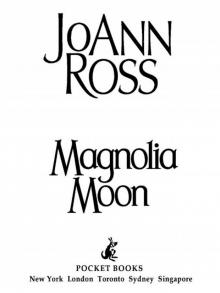 Magnolia Moon
Magnolia Moon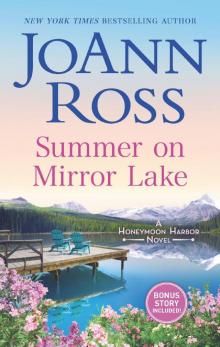 Summer on Mirror Lake
Summer on Mirror Lake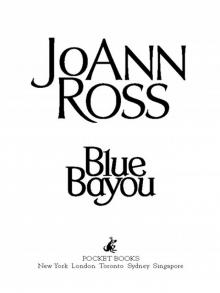 Blue Bayou
Blue Bayou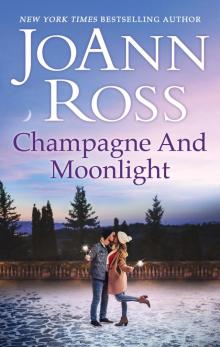 Champagne and Moonlight
Champagne and Moonlight No Regrets
No Regrets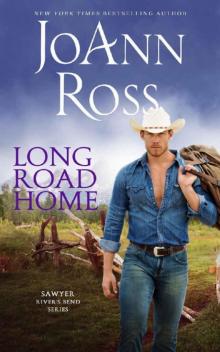 Long Road Home
Long Road Home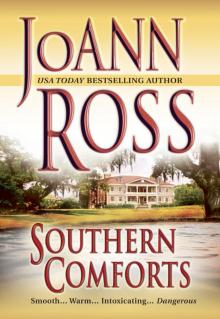 Southern Comforts
Southern Comforts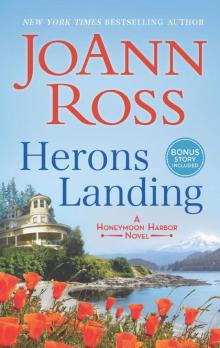 Herons Landing
Herons Landing Untamed
Untamed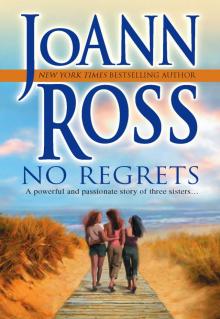 No Regrets (Mira Romance)
No Regrets (Mira Romance)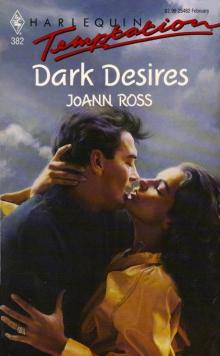 Dark Desires
Dark Desires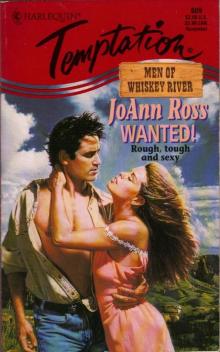 Wanted!
Wanted!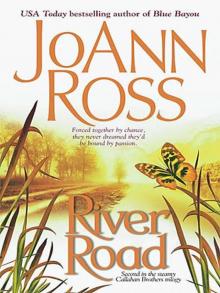 River Road
River Road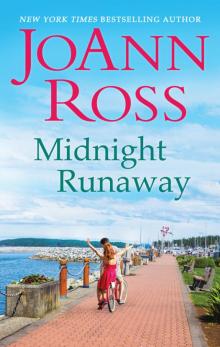 Midnight Runaway
Midnight Runaway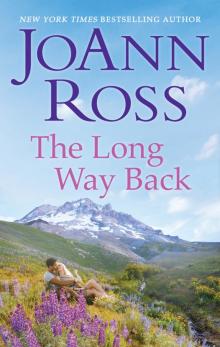 The Long Way Back
The Long Way Back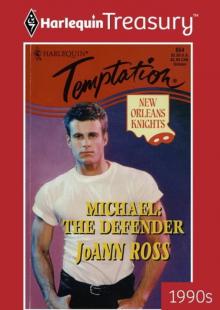 Michael: The Defender
Michael: The Defender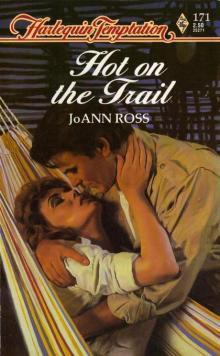 Hot on the Trail
Hot on the Trail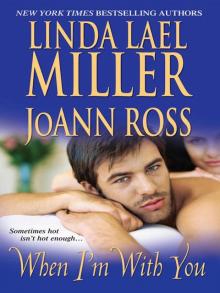 When I'm With You
When I'm With You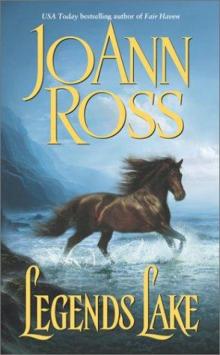 Legends Lake
Legends Lake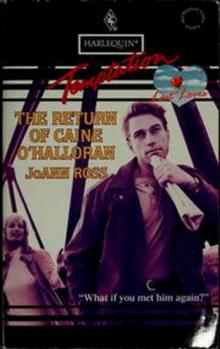 The Return of Caine O'Halloran
The Return of Caine O'Halloran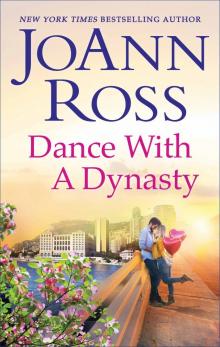 Dance with a Dynasty
Dance with a Dynasty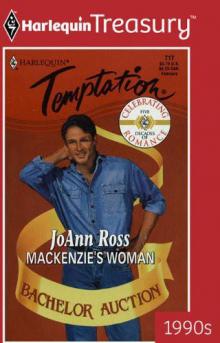 MacKenzie's Woman
MacKenzie's Woman Impulse
Impulse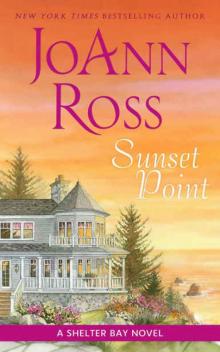 Sunset Point: A Shelter Bay Novel
Sunset Point: A Shelter Bay Novel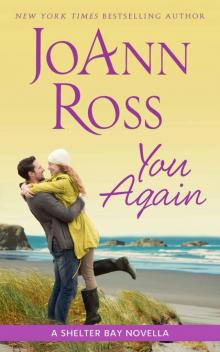 You Again: A Shelter Bay novella (Shelter Bay series Book 8)
You Again: A Shelter Bay novella (Shelter Bay series Book 8)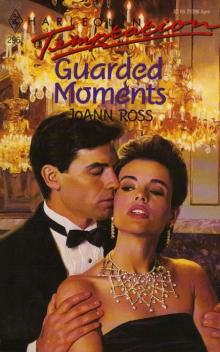 Guarded Moments
Guarded Moments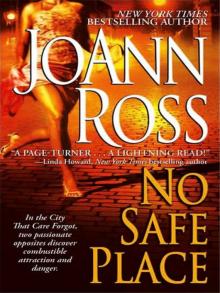 No Safe Place
No Safe Place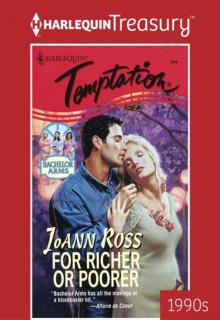 For Richer or Poorer
For Richer or Poorer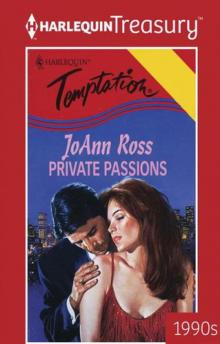 Private Passions
Private Passions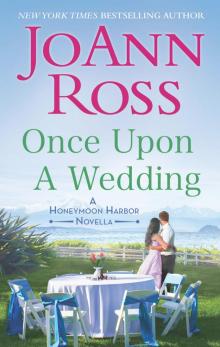 Once Upon a Wedding
Once Upon a Wedding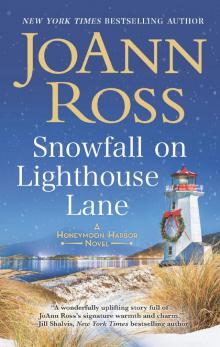 Snowfall on Lighthouse Lane
Snowfall on Lighthouse Lane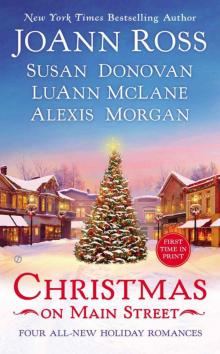 Christmas on Main Street
Christmas on Main Street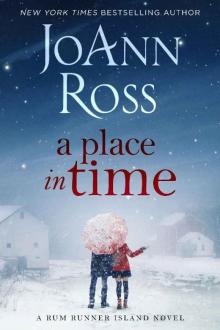 A Place in Time (Rum Runner Island Book 1)
A Place in Time (Rum Runner Island Book 1)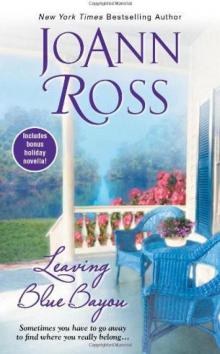 Leaving Blue Bayou
Leaving Blue Bayou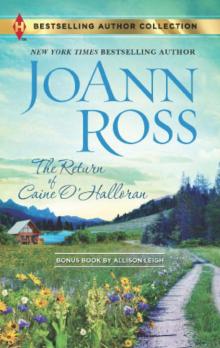 The Return of Caine O'Halloran: Hard Choices
The Return of Caine O'Halloran: Hard Choices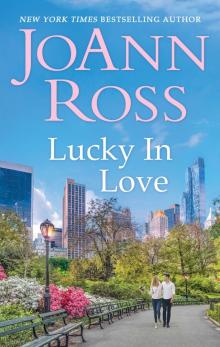 Lucky in Love
Lucky in Love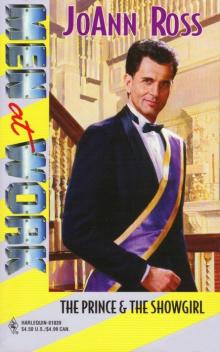 The Prince & The Showgirl
The Prince & The Showgirl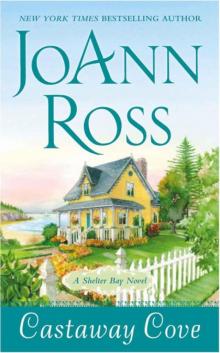 Castaway Cove
Castaway Cove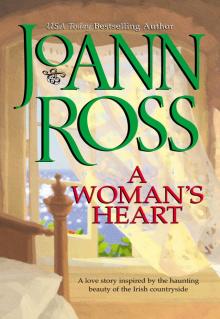 A Woman's Heart
A Woman's Heart One Summer
One Summer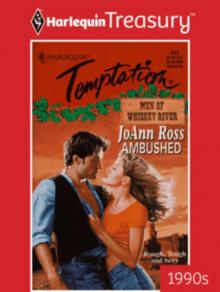 Ambushed
Ambushed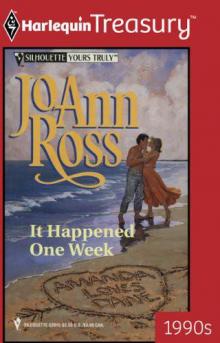 It Happened One Week
It Happened One Week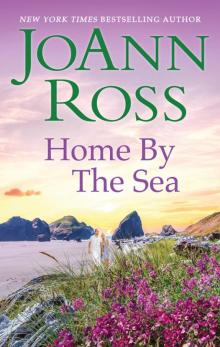 Home by the Sea
Home by the Sea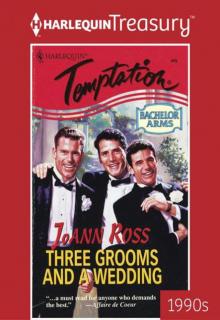 Three Grooms and a Wedding
Three Grooms and a Wedding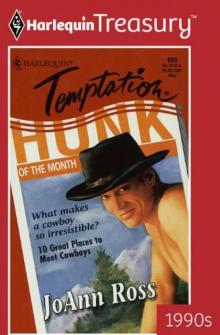 Hunk of the Month
Hunk of the Month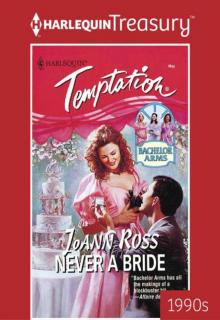 Never a Bride
Never a Bride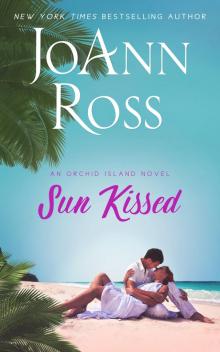 Sun Kissed
Sun Kissed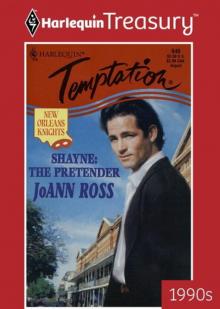 Shayne: The Pretender
Shayne: The Pretender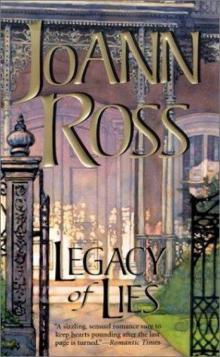 Legacy of Lies
Legacy of Lies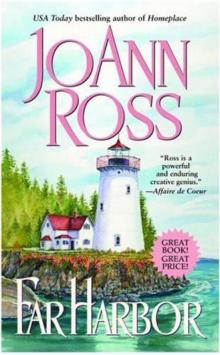 Far Harbor
Far Harbor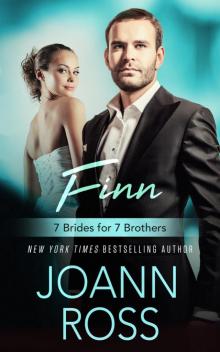 Finn
Finn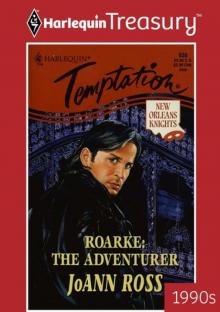 Roarke: The Adventurer
Roarke: The Adventurer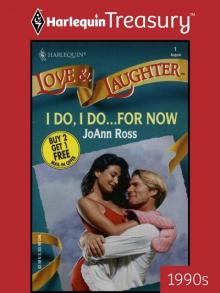 I Do, I Do...For Now (Harlequin Love and Laugher)
I Do, I Do...For Now (Harlequin Love and Laugher)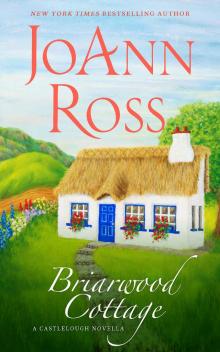 Briarwood Cottage
Briarwood Cottage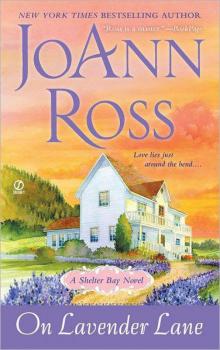 On Lavender Lane
On Lavender Lane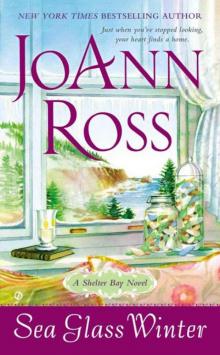 Sea Glass Winter
Sea Glass Winter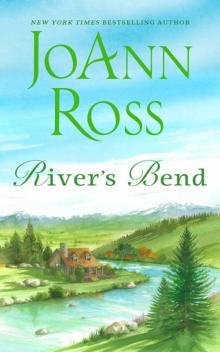 River's Bend
River's Bend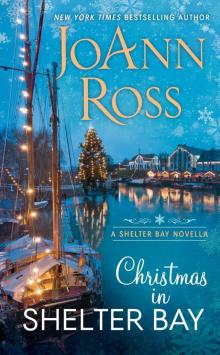 Christmas in Shelter Bay
Christmas in Shelter Bay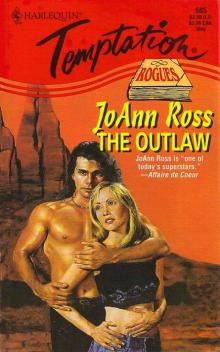 The Outlaw
The Outlaw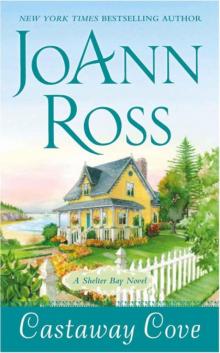 Castaway Cove (2013)
Castaway Cove (2013)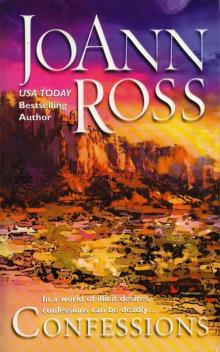 Confessions
Confessions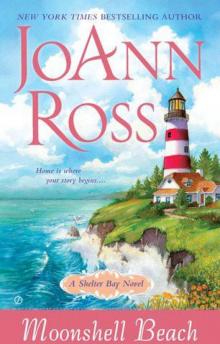 Moonshell Beach: A Shelter Bay Novel
Moonshell Beach: A Shelter Bay Novel